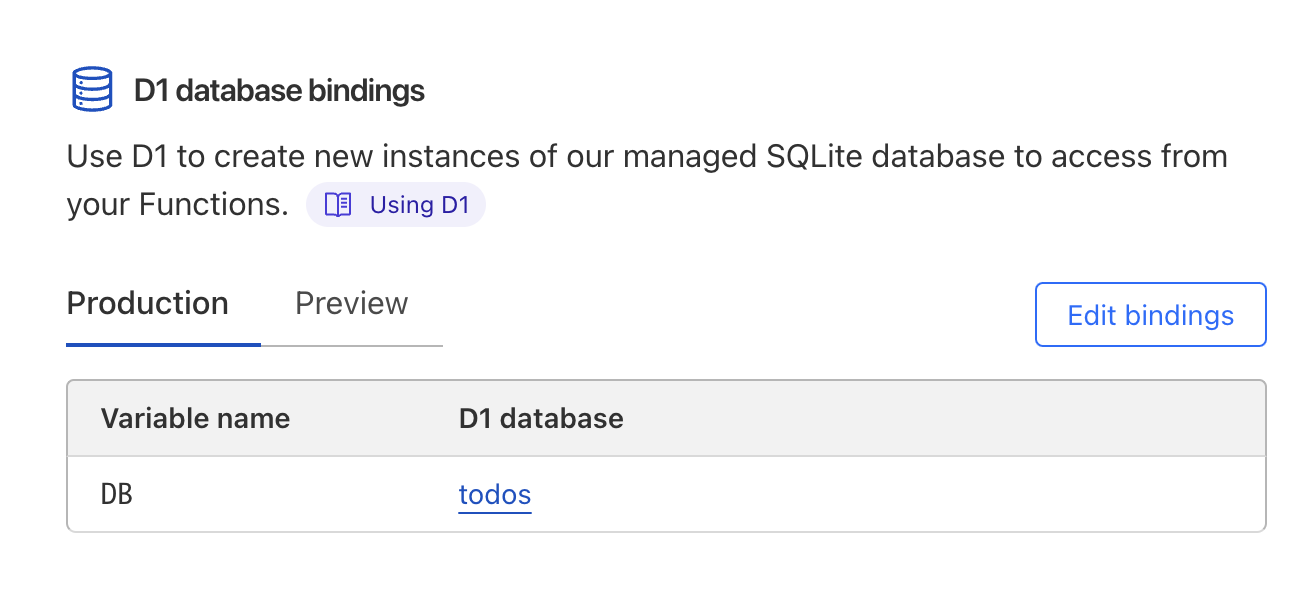
Security News
Deno 2.2 Improves Dependency Management and Expands Node.js Compatibility
Deno 2.2 enhances Node.js compatibility, improves dependency management, adds OpenTelemetry support, and expands linting and task automation for developers.
@atinux/nuxthub
Advanced tools
The Nuxt Toolkit to create full-stack applications on the Edge.
useAuth(event)useDatabase()useKV()useBlob()const blob = await useBlob().put('my-file.txt', 'Hello World!', {
contentType: 'text/plain' // optional, will be inferred from the file extension
addRandomSuffix: true // optional, will add a suffix to the filename to avoid collisions
})
/*
{
pathname: 'my-file-12345.txt',
contentType: 'text/plain',
size: 12,
uploadedAt: '2021-08-12T15:00:00.000Z'
}
*/
export default eventHandler(async (event) => {
const form = await readFormData(event)
const file = form.get('file')
return useBlob().put(file.name, file)
})
// Get a blob object
const { blobs, cursor, hasMore } = await useBlob().list({
limit: 10, // optional, default to 1000
prefix: 'my-dir', // optional, will only list blobs starting with `my-dir`
})
const blob = useBlob()
let blobs = []
let hasMore = true
let cursor
while (hasMore) {
const result = await blob.list({
cursor,
})
blobs.push(...result.blobs)
hasMore = result.hasMore
cursor = result.cursor
}
const blob = await useBlob().head('my-file.txt')
await useBlob().delete('my-file.txt')
It returns a void response. A delete action is always successful if the blob url exists. A delete action won't throw if the blob url doesn't exists.
// server/routes/[...pathname].get.ts
export default eventHandler(event => {
const pathname = event.context.params.pathname
return useBlob().serve(event, pathname)
})
useKV() -> process.env.KV binding
useKV().setItem('public/')
const value = await useKV().get('my-key')
https://github.com/Atinux/nuxt-todos-edge/assets/904724/5f3bee55-dbae-4329-8057-7d0e16e92f81
Make sure to install the dependencies using pnpm:
pnpm i
Create a GitHub Oauth Application with:
http://localhost:3000http://localhost:3000/api/auth/githubAdd the variables in the .env file:
NUXT_OAUTH_GITHUB_CLIENT_ID="my-github-oauth-app-id"
NUXT_OAUTH_GITHUB_CLIENT_SECRET="my-github-oauth-app-secret"
To create sealed sessions, you also need to add NUXT_SESSION_SECRET in the .env with at least 32 characters:
NUXT_SESSION_SECRET=your-super-long-secret-for-session-encryption
Start the development server on http://localhost:3000
npm run dev
In the Nuxt DevTools, you can see your tables by clicking on the Drizzle Studio tab:
https://github.com/Atinux/nuxt-todos-edge/assets/904724/7ece3f10-aa6f-43d8-a941-7ca549bc208b
Create a CF pages deployment linked to your GitHub repository. Make sure to select Version 2 (Beta) as the build system version.
NUXT_OAUTH_GITHUB_CLIENT_ID=...
NUXT_OAUTH_GITHUB_CLIENT_SECRET=...
NUXT_SESSION_PASSWORD=...
Set the build command to:
npm run build
And the output directory to dist/
Lastly, in the project settings -> Functions, add the binding between your D1 database and the DB variable:

Copy the contents from server/database/migrations/0000_heavy_xorn.sql into the D1 console to seed the database.
You can also use Turso database instead of CloudFlare D1 by creating a database and adding the following env variables:
TURSO_DB_URL=...
TURSO_DB_TOKEN=...
You can see a live demo using Turso on https://nuxt-todos-turso.pages.dev
FAQs
The Nuxt Toolkit to create full-stack applications on the Edge.
We found that @atinux/nuxthub demonstrated a not healthy version release cadence and project activity because the last version was released a year ago. It has 2 open source maintainers collaborating on the project.
Did you know?

Socket for GitHub automatically highlights issues in each pull request and monitors the health of all your open source dependencies. Discover the contents of your packages and block harmful activity before you install or update your dependencies.

Security News
Deno 2.2 enhances Node.js compatibility, improves dependency management, adds OpenTelemetry support, and expands linting and task automation for developers.

Security News
React's CRA deprecation announcement sparked community criticism over framework recommendations, leading to quick updates acknowledging build tools like Vite as valid alternatives.

Security News
Ransomware payment rates hit an all-time low in 2024 as law enforcement crackdowns, stronger defenses, and shifting policies make attacks riskier and less profitable.